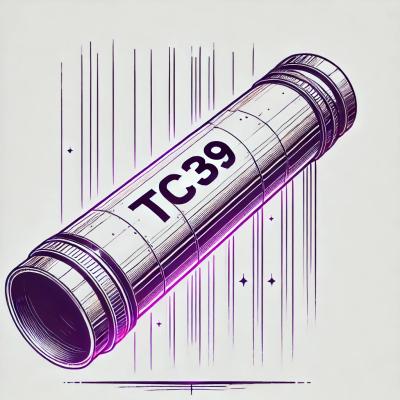
Security News
NVD Quietly Sweeps 100K+ CVEs Into a “Deferred” Black Hole
NVD now marks all pre-2018 CVEs as "Deferred," signaling it will no longer enrich older vulnerabilities, further eroding trust in its data.
A simple Python module to automatically turn your functions into definitions that can be used for LLM tool calling. Built with Rust for blazing fast string parsing.
pip install llm-tool
Just use the @tool() decorator to automatically turn a function into a tool definition.
from llm_tool import tool
@tool()
def test_func(graph_data: List[float], portfolio_name: str, description: str = "This is a description", marketValue: float = 14_000) -> List[float]:
"""
Generate an image with the given data.
:param graph_data: List of data points to be plotted on the graph.
We only need the y-axis values.
The x-axis values will be calculated based on the length of the list.
All values are normalized to fit the graph region.
:param portfolio_name: Name of the portfolio.
:param description: Description of the portfolio.
:param marketValue: The marketValue of the portfolio.
:return: Processed Image with the given data drawn.
"""
pass
Get the definition:
definition = test_func.definition
You can still use the function:
test_func(...)
Definitions are generated based on the format specified by the Berkeley Function-Calling Benchmark.
The definition for the function above will look like this:
{
'type': 'function',
'function': {
'name': 'test_func',
'description': 'Generate an image with the given data.\n\nReturn Type: `None`\n\nReturn Description: Processed Image with the given data drawn.',
'parameters': {
'type': 'object',
'properties': {
'graph_data': {
'type': 'List',
'description': 'List of data points to be plotted on the graph.\n We only need the y-axis values.\n
The x-axis values will be calculated based on the length of the list.\n All values are normalized to fit the graph region.'
},
'portfolio_name': {
'type': 'str',
'description': 'Name of the portfolio.'
},
'description': {
'type': 'str',
'description': 'Description of the portfolio. Default Value: `This is a description`'
},
'marketValue': {
'type': 'float',
'description': 'The marketValue of the portfolio. Default Value: `14000`'
}
},
'required': ['graph_data', 'portfolio_name']
}
}
}
fomr llm_tool import tool
class TestClass:
@tool(self)
def test_method(self, a: int = 0) -> None:
'''
This is a test method.
:param a: This is a test parameter.
'''
pass
# get the definition from the class
definition = TestClass.test_method.definition
# or from an object
t = TestClass()
definition = t.test_method.definition
from groq import Groq
from llm_tool import tool
client = Groq(api_key=GROQ_KEY)
@tool()
def get_user_data(userId: str) -> Dict[str, str]:
"""
Fetch user data from database.
:param userId: The user's id.
:return: Dictionary with user's data
"""
pass
@tool()
def create_user(username: str, pass: str, created_at: str = datetime.datetime.now().strftime("%Y-%m-%d %H:%M:%S")) -> None:
"""
Create a new user
:param username: user username
:param pass: user password
:param create_at: date user was created
"""
pass
tools = [
get_user_data.definition,
create_user.definition,
]
response = client.chat.completions.create(
messages=messages,
model="llama-3.1-70b-versatile",
tools=tools,
tool_choice="auto",
)
tool_calls = response.choices[0].message.tool_calls
The @tool() decorator can work for functions with less documentation.
Everything in the documentation and typing of the function is optional except for parameter type hints.
The following will raise a DocStringException:
@tool()
def test(a) -> None:
pass
But all of the following are legal:
# Just a description, no return typing hint or parameter description.
@tool()
def test(a: int):
"""
This is a description.
"""
pass
# No docstring
@tool()
def test(a: int):
pass
# Return Type Hint without return deswcription
@tool()
def test(a: int) -> None:
pass
# Return description without return type hint
@tool()
def test(a: int):
"""
:return: test return description
"""
pass
# Docstring with parameter descriptions and no return description
def test(a: int) -> None:
"""
Description
:param a: another description
"""
pass
# Or any combination of the above
The @tool() decorator allows for configuration that enforces more rules.
desc_required: if True it makes descriptions for all parameters mandatory, raises DocStringException otherwise. Default is Falsereturn_required: if True it makes the return type hint and return description mandatory, raises DocStringException otherwise. Deafult is FalseThere are two ways the @tool() decorator:
@tool(desc_required=True, return_required=False)
def test(a: int) -> int:
"""
:param a: description
:return: return description
"""
pass
@tool(desc_required=False, return_required=False)
def test(a: int) -> int:
"""
:return: return description
"""
pass
from llm_tool import GlobalToolConfig
GlobalToolConfig.desc_required = True
GlobalToolConfig.return_required = True
@tool()
def test(a: int) -> int:
"""
:param a: description
:return: return description
"""
pass
# ignore global config
@tool(desc_required=False, return_required=False)
def test2(a: int) -> None:
pass
Currently only docstrings in the reST format are supported, but support for more doscstring formats will be added in the future.
FAQs
Unknown package
We found that llm-tool demonstrated a healthy version release cadence and project activity because the last version was released less than a year ago. It has 1 open source maintainer collaborating on the project.
Did you know?

Socket for GitHub automatically highlights issues in each pull request and monitors the health of all your open source dependencies. Discover the contents of your packages and block harmful activity before you install or update your dependencies.

Security News
NVD now marks all pre-2018 CVEs as "Deferred," signaling it will no longer enrich older vulnerabilities, further eroding trust in its data.

Research
Security News
Lazarus-linked threat actors expand their npm malware campaign with new RAT loaders, hex obfuscation, and over 5,600 downloads across 11 packages.

Security News
Safari 18.4 adds support for Iterator Helpers and two other TC39 JavaScript features, bringing full cross-browser coverage to key parts of the ECMAScript spec.